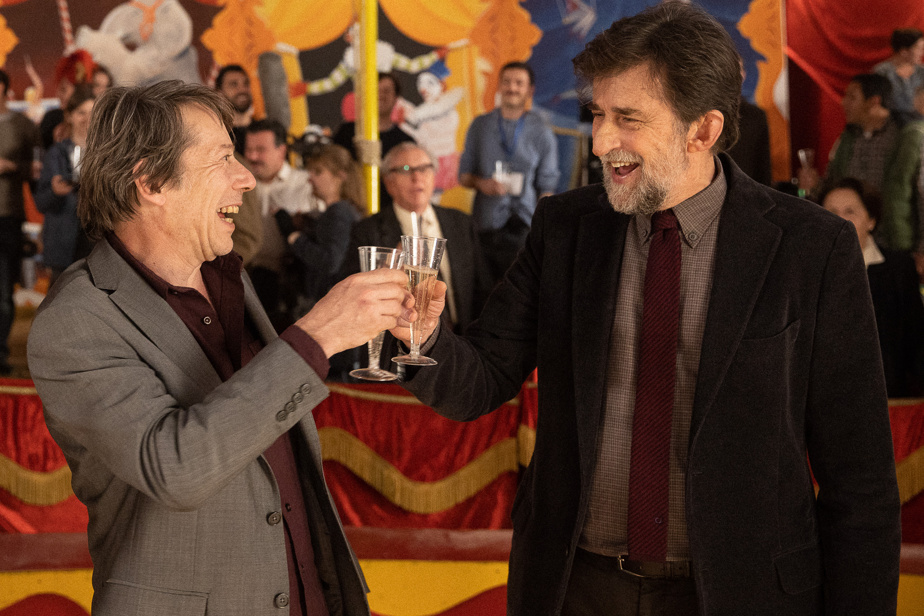(Cannes) Every day, The Press presents films seen on the Croisette.
Towards a bright futureby Nanni Moretti: Moretti, inspired when he talks about himself
After a while, the filmmaker character played by Nanni Moretti in Towards a bright future concludes that it has come to the end of everything. End of his couple, end of cinema, end of the left, in short, everything seems to slip under his feet at the same time. However, do not believe that the 14e feature film by this filmmaker who has already won the Palme d’or (The son’s room in 2001) is heavy for all that. Quite the contrary. Truth be told, it feels a bit like after the disappointing Tre piani, also in competition at Cannes in 2021, Nanni Moretti is going back to basics by doing what he does best: talking about himself. At 69, the Italian filmmaker is still just as passionate about cinema, although he is starting to feel aging and understanding a world in perpetual change is not always obvious to him. In this new dramatic comedy, Moretti slips into the shoes of a filmmaker named Giovanni (Nanni Moretti’s real first name), who believes he can tell the story of the Italian Communist Party, which no one knows anymore, through a great film politics on the Hungarian repression by the Soviets in 1956. Obviously, nothing works (Mathieu Amalric plays a French producer on the verge of bankruptcy), no more than the personal life of the filmmaker, while his lover (Margherita Buy), that he has been in love for 40 years, is thinking of leaving him. Punctuated with old popular songs, spiking Netflix in passing during a meeting where the only argument of the online broadcaster is to be present in 190 countries, Towards a bright future borrows a bit from the form of a sum-film celebrating a career that has now spanned five decades. Well worth a parade at the end!
Olfa’s daughtersby Kaouther Ben Hania: a poignant story

PHOTO PROVIDED BY JOUR2FÊTE
A scene from Olfa’s daughters. Kaouther Ben Hania’s film is selected at Cannes in official competition.
Olfa’s daughters is the sixth feature film by Kaouther Ben Hania, a Tunisian filmmaker whose international fame rose to prominence two years ago, when The man who sold his skin was selected for the Oscars as one of the five finalists in the category of best foreign language film. Participating in the race for the Palme d’Or for the first time, the director offers a docufiction based on a real story, in which actresses are invited to play parts of a story that occurred in the early 2010s, told the real people who lived it. Thus, Olfa describes the life of her family with her four daughters while an actress plays her in the re-enactments. The same is true for the two youngest children of the siblings, now teenagers. Two actresses play the two eldest permanently, the latter having become radicalized and having joined the ranks of the Islamic State group. The exercise is obviously fascinating, but this process does not always turn out to be appropriate, insofar as the spectator is always brought back to the artifices of cinema, which creates a kind of distance. That said, Olfa’s daughters is punctuated with poignant moments and could very well end up on the charts.
